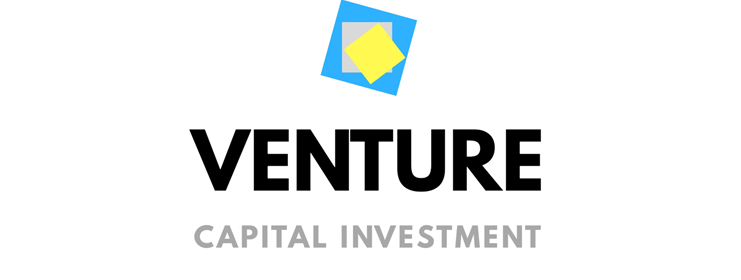
It is important to be aware of the existence of various risk capital alternatives in the market to be able to invest in the best so you as an entrepreneur or a business person can profit more than expected. Therefore, it is natural to ask what is Venture Capital as it is one of the most consistent “risk capital” investments that exist in the market.
What is Venture Capital?
Venture Capital refers to the money that is provided by a foreign investor so as to finance a new or developing business. It also lends help to businesses that have been under turbulence for a prolonged period of time. Venture Capital provides business entrepreneurs with funding despite of being aware of the fact that there is a significant amount of risk associated with the future profits as well as cash flow of the particular company. Venture Capital is invested against an equity stake in the business. Therefore the funding is not given as a loan but on the investors hope that the investment will bring about a return that is better than average.
Venture Capital has turned out to be an important source of funding especially for start-up businesses or companies that have operated only for a limited period or companies that don’t have access to capital markets. There are several Venture Capital firms that provide easy solutions for businessmen and entrepreneurs to expose themselves in the global market. A Venture Capital firm looks for various small businesses that have a long term growth agenda or potential to eventually bring about large pay-out for the investors. Regardless of the high money value that goes into Venture Capital investments, it does not make a Venture Capitalist a wealthy financier. Usually, the Venture Capitalists indulge in limited partnerships and own a fund of pooled investment capital, which they use to invest in several companies. Venture Capital investments vary in size depending on the firms. The whole dome of venture capital includes individuals managing just a few million dollars’ worth of investments as well as capitalists who have invested billions of dollars in companies all over the world.
What comprises of a venture capital?
A venture capital may include a small group of investors or subsidiary or affiliate of a large investment bank, commercial bank et cetera. It is also likely to include insurance companies that make investments on behalf of clients who belong to the parent company or outside investors.
To put it in a nutshell, a Venture Capital makes the optimum use of its business knowledge, expertise as well as experience to fund and help various companies nurture in order to produce a better-than-average return on the Venture Capitalist’s investment, which usually takes three to seven years.
To know what is Venture Capital in detail, it is a good idea to start observing the market behaviour, fluctuations et cetera. It is important to be aware that not all Venture Capital investments pay off. The rate of failure for the investing firm may turn out to be quite high i.e. ranging from 20 per cent to 90 per cent. There have been instances when about 90% of the portfolio companies failed at returning on the Venture Capital’s investment. In case of a high return, Venture Capital investment can offer a fund return ranging from 300 to 1000 per cent.
A Venture Capital stimulates growth at the company through its constant and effective involvement in the strategic, managerial and planning decisions. The expertise of Venture Capitalists is rested upon general partners like former CEO’s, experts in different industries and bankers. These partners may also be involved in recruiting executives to perform key tasks in the portfolio company.
The funding process in a Venture Capital investment
After a general review of what is Venture Capital, it is imperative to know how the funding process is handled and managed by Venture Capital firms.
First step
The first task before approaching a Venture Capitalist is to charter and submit a business plan. If you are an entrepreneur or a business person, your business plan should highlight the following:
- Description of the market size and its opportunity
- Resumes of all the members in the management team
- A broad review of the competitive arena with solutions
- Detailed financial projections
- Capitalization table
- Executive summary of the business proposal
Upon receiving the plan, the Venture Capitalist will call for a discussion internally debating over the opportunity of the plan in the market and whether or not the plan should be approved. Try and fix a face-to-face appointment with the Venture Capitalist to portray a wider picture of what you wish to launch in the market, as what is written may not explain your idea completely. In fact, a face-to-face meeting gives you an opportunity to add on minor points that you might have missed while drafting the plan.
It is imperative to know that a Venture Capitalist receives over 200 business plans each month. Regular check-ups with the Venture Capitalist will keep you aware of developments pertaining to your business plan.
Second step
Introductory meeting
If your firm fits with the investment preferences of the Venture Capital firm, you will definitely be contacted for further dialogue about the business in-depth. The meeting is likely to be held for one-two hours where you have the freedom to discuss the business plan. It is after the meeting, that the VC determines whether it is feasible to move forward or not.
Third step
Due diligence
This phase is likely to vary depending on the nature of the business proposal. It is likely to last from around three weeks to three months. Expecting phone calls, management interviews, emails, customer references, business and product strategy evaluations along with other exchanges of important information during this phase are desirable.
Fourth step
Term sheets and funding
If the due diligence phase ends smooth, the Venture Capitalist is likely to offer you with a term sheet. A term sheet is a non-binding document that charters the basic terms as well as conditions the goes into the investment agreement.
